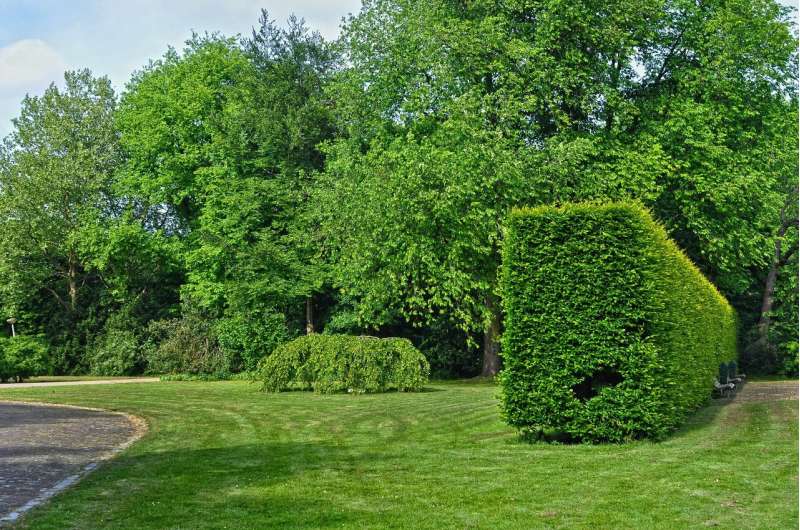More green spaces linked to slower biological aging

Northwestern scientists have conducted a new study to see if living near green spaces, like parks and areas with a lot of plants, can affect how our bodies age and contribute to overall healthy aging.
More green spaces were associated with slower biological aging, according to a Northwestern Medicine report. People who lived near more green spaces were biologically 2.5 years younger, on average, than those who live near less greenness.
The benefits of green spaces were not equal, however, as scientists found variations in race, sex and socioeconomic status.
“When we think about staying healthy as we get older, we usually focus on things like eating well, exercising and getting enough sleep,” said Kyeezu Kim, first author on the study and a postdoctoral scholar in preventive medicine at Northwestern University Feinberg School of Medicine. “However, our research shows that the environment we live in, specifically our community and access to green spaces, is also important for staying healthy as we age.”
The study is the first to investigate the effect of long-term exposure (about 20 years of exposure) on urban green space and biological aging, specifically using DNA methylation-based epigenetic age.
DNA methylation-based epigenetic age refers to chemical changes in DNA that may influence various age-related health outcomes. Epigenetic age is a biomarker of aging associated with age-related disease and all-cause mortality.
The investigators discovered variations in the benefits of green spaces for biological aging based on race, sex and socioeconomic status.
The study involved more than 900 individuals residing in four cities across the U.S.: Birmingham, Ala.; Chicago; Minneapolis; and Oakland, Calif. This sample represents a subset of a larger-scale cohort study conducted in the U.S., the Coronary Artery Risk Development in Young Adults (CARDIA).
Researchers evaluated the 20-year exposure to surrounding green spaces using satellite imaging, which allowed them to quantify the overall vegetation (greenness proportion) as well as the presence of major parks near the participants’ residences. To assess participants’ biological age, scientists analyzed their blood DNA methylation.
“Our study highlights that the natural environment, like green space, affects your health at a molecular level (changes in DNA methylation), which was detectable in blood,” said senior author Dr. Lifang Hou, professor of preventive medicine at Feinberg. “Our research team has extensively investigated the molecular-level changes associated with various age-related health outcomes, including cardiovascular disease, cancer, cognitive function and mortality. This particular study contributes to our understanding of how the natural environment influences these health outcomes.”
The disparities observed in the study based on race, sex and socioeconomic status underscore the importance of conducting future research to investigate the role of social determinants of health in relation to the surrounding environment and healthy aging, Hou said.
“We believe our findings have significant implications for urban planning in terms of expanding green infrastructure to promote public health and reduce health disparities,” Kim said.
The paper, “Inequalities in urban greenness and epigenetic aging: different associations by race and neighborhood socioeconomic status,” was published June 28 in Science Advances.
More information:
Kyeezu Kim et al, Inequalities in urban greenness and epigenetic aging: Different associations by race and neighborhood socioeconomic status, Science Advances (2023). DOI: 10.1126/sciadv.adf8140
Citation:
More green spaces linked to slower biological aging (2023, July 3)
retrieved 3 July 2023
from https://phys.org/news/2023-07-green-spaces-linked-slower-biological.html
This document is subject to copyright. Apart from any fair dealing for the purpose of private study or research, no
part may be reproduced without the written permission. The content is provided for information purposes only.
For all the latest Science News Click Here
For the latest news and updates, follow us on Google News.

